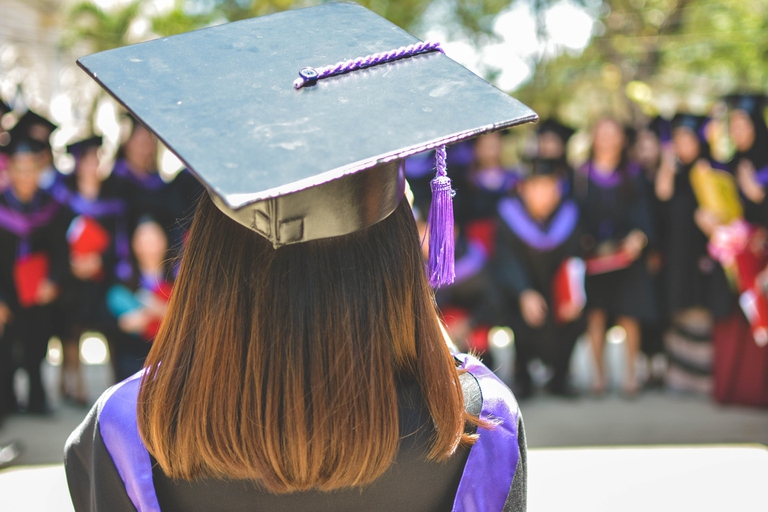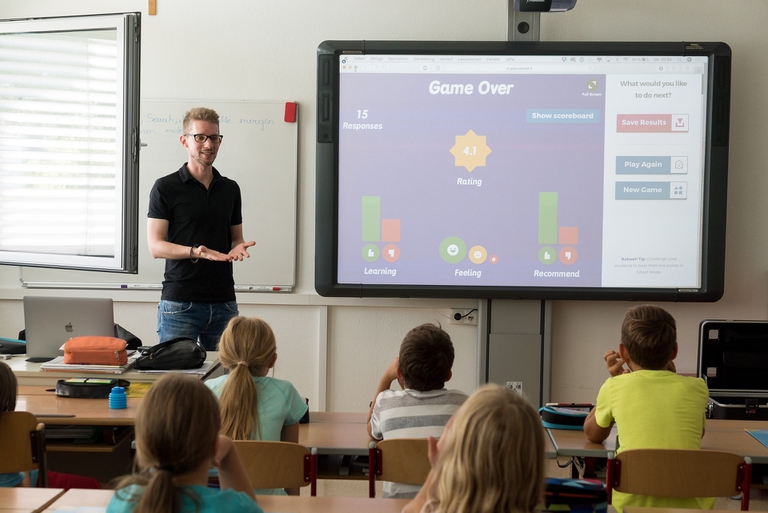https://www.lifegate.it/dsa-algor-tecnologia-didattica
- |
- In Italy there are more than 300 thousand students with a diagnosis of specific learning disabilities (DSA).
- In addition to the more well-known dyslexia, DSA also includes dysgraphia, dysorthography and dyscalculia.
- Law 170 of 2010 recognizes learning disabilities and regulates the use of compensatory and dispensatory tools.
- An example is the platform developed by Algor Lab to synthesize long and complex texts in the form of concept maps.
The best known is the dyslexia, i.e. reading difficulty, but Dsa (Specific Learning Disorders) are also part of dysgraphia, that is, uncertain and incomprehensible handwriting;there dysorthography which affects the linguistic processes of transcoding writing;and the dyscalculia, with strong difficulties in mathematical calculations. These are not diseases, but simply of a different functioning of the neuronal network which does not prevent reading, writing or counting, but requires the right management strategies, long times and greater attention.
Dsa are disorders innate and not transitory, invisible and often difficult to diagnose.For this reason, those who suffer from it are often victims of prejudice and experience emotional difficulties that can compromise their self-esteem and the progress of their school and work path.Yet, they are much more widespread than you think:according to the Ministry of Education, in Italy there are students with full-blown DSA more than 300 thousand, to which are added those who have not yet completed the medical process for diagnosis.
On the occasion of International Students' Day, which falls on November 17, in hoping for a school system that is attentive to everyone's needs, we take stock of the spread of DSA, the strategies implemented by schools to support those who suffer from it and the importance of technology as a compensatory teaching tool.We do this with the help of two experts. Mauro Musarra he is co-founder of the startup Algor Lab, part of the ecosystem of LifeGate Way, which developed the digital platform Algor Education for the reaction of concept maps.Algor Lab's consultant is Dr Barbara Urdanch, expert in specific learning disabilities, inclusive teaching and special educational needs.
How well known and widespread DSA are in Italy
The first fact to reflect on is that of 300 thousand diagnoses nationwide.An undoubtedly significant number which, however, alone gives a very partial picture.“In Italy, the awareness and diagnosis of DSA are remarkable regional variations“, explains Mauro Musarra.“The most recent statistics indicate that in some regions of north the frequency of diagnoses approaches 10 percent of students, suggesting greater awareness and access to support services.However, that awareness drops significantly as we move towards the south.These data highlight a territorial disparity in the management of DSA, highlighting the importance of adequate educational support at a national level.It is essential to underline that Dsa can significantly influence the educational path of individuals and the lack of diagnosis or adequate support can pose significant challenges.It is estimated that around one person in four in Italy is not autonomous in the study due to these disorders, underlining the urgency of provide adequate support to ensure inclusive and quality education".
He echoes it Barbara Urdanch, according to which "LDS are now rather well known in terms of 'hearsay', but there is still a lack of real awareness, especially regarding the knowledge of neurodiversity in general".In fact, students with DSA are often mistakenly labeled as lazy or poorly motivated, as they show difficulty in carrying out activities considered simple and obvious.In reality, people with DSA have aintelligence perfectly normal:they simply have different neurological characteristics and, with the right supports, can achieve the same results as their peers.Some progress in this sense came in 2010 with the introduction of law n.170 which recognizes learning disabilities and regulates the use of compensatory and dispensatory tools.“Law 170 has allowed schools to learn more about DSA and to delve deeper into the needs of individuals with special educational needs in general,” explains Barbara Urdanch.“The law provides for the drafting of a personalized teaching plan, resulting in the use of compensatory and dispensatory tools and adequate forms of evaluation.Schools are increasingly competent in terms of inclusion, but prejudices and little knowledge still exist.Much has been done, but much still remains to be done."

How to create a truly inclusive learning environment
For students to follow their learning paths effectively, it is essential to create a inclusive teaching environment at all levels of education.The Italian school system, especially after the advent of law 170, focuses heavily on the personalization of the teaching plan and aims to make students with DSA as autonomous.Basically, in fact, these boys and girls have to face additional obstacles and challenges compared to their classmates:to allow them to experience this journey without feeling "different" or inferior, we need schools equipped with right technological supports and we need teachers capable of using them to the fullest.
From an inclusive perspective, the ability of teachers to integrate the community is therefore decisive technology within a targeted teaching plan that makes the student the protagonist and makes him feel followed and understood, while at the same time encouraging climate of trust and dialogue within the classroom.But the dream of an inclusive school for all, as often happens in our country, clashes with a reality marked by prejudices, poor preparation, economic and bureaucratic difficulties.To overcome this problem, ensuring the right to study and equal opportunities for students with Dsa, theItalian Dyslexia Association (Aid) he came up with one digital library which allows them to request the open PDF format of school texts of all levels.

Technology to help students be autonomous and regain self-confidence
For those suffering from dyslexia, in fact, they prove to be a valid help digital books in pdf that can be read by programs equipped with speech synthesis. Special software also allows you to underline and export images and parts of text, to create concept maps.The latter are of great support to those suffering from learning disabilities, as they summarize long texts in the form of boxes or circles connected with arrows. Algor Education was created precisely to allow students, through artificial intelligence, to create, modify and share conceptual and multimedia maps in a convenient digital whiteboard.
“Tools like Algor offer significant opportunities to improve the education of students with DSA,” explains Mauro Musarra.“The personalization of learning e the accessibility of teaching materials can have a profound impact on their educational journey.Additionally, Algor's ability to make study material more understandable and interactive can encourage students to try harder.The increase inautonomy in studying is crucial for students with DSA and tools like Algor can play an important role in encouraging them to become more independent”.
The technology, therefore, contributes to educational success because it stimulates repetition, generates competence, allows you to access and make information your own and limits the onset of demotivation and frustration.“The technologies are indispensable for subjects with DSA", confirms Dr. Urdanch, "because they can relieve some processes linked to automatisms and allow their 'cognitive battery' to be completely dedicated to learning and studying.Technologies are, in fact, 'the book and pencil' of individuals with DSA:they do not affect the cognitive load, which must be safeguarded because they have a IQ normal, but allow the compensation of some fragile processes due to neurodiversity.Technologies can read, correct errors, allow the construction of conceptual maps;they do not 'think' for the person with DSA, but allow him to compensate for specific difficulties resulting from neurodiversity".
Good or bad technology?
In closing, we couldn't help but ask the two experts to take a position on the age-old question: Is there a “good” technology and a “bad” technology? “In my opinion, technology is always good, the use made of it can be bad,” replies Barbara Urdanch.According to Musarra, “it is undeniable that any technology, including artificial intelligence, can present challenges:these may include ethical issues, privacy, data security and possible inequality in access to resources.To address these challenges, it is essential that there are responsible companies like Algor that are committed to building products with ethical constraints and pay attention to the impact that technology should have.It is important that the development of artificial intelligence proceeds with one adequate regulation and with a design that puts the focus on benefits and equity".
“Looking to the future, an app like Algor can be even more effective if it continues to integrate advances in artificial intelligence to further refine its personalization of learning, concludes Musarra.“As machine learning and natural language processing technologies evolve, Algor could offer even more fluid and natural interactions, making the learning experience even more engaging and intuitive, while also facilitating connections between students from different parts of the world in one 'optics of cultural exchange”.

